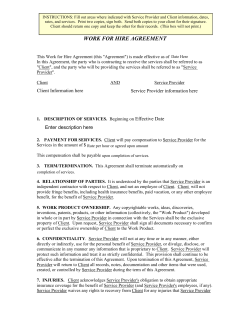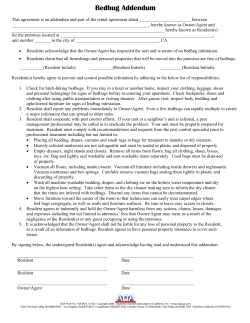
Russia-Malta Tax Treaty is in Effect as of 1 January
17 December 2014 EY Global Tax Alert Library Access both online and pdf versions of all EY Global Tax Alerts. • Copy into your web browser: http://www.ey.com/GL/en/ Services/Tax/InternationalTax/Tax-alert-library#date Global Tax Alert Russia-Malta Tax Treaty is in Effect as of 1 January 2015 Executive summary The tax treaty between Russia and Malta was signed on 24 April 2013 and entered into force on 22 May 2014. Its provisions will apply to income derived as of 1 January 2015. The treaty covers Russian profits tax and personal income tax, and Maltese income tax. Some of the more significant provisions are summarized below. Detailed discussion Dividends, Interest and Royalties If a Russian company pays dividends to a resident of Malta which has a shareholding in a Russian legal entity exceeding 25% and the price of that shareholding exceeded €100,000, the withholding tax rate should not exceed 5%. In all other cases dividend withholding tax is capped at 10%. If a Maltese company pays dividends to a Russian company that is its beneficial owner, Maltese tax on the gross amount of the dividends may not exceed that chargeable on the profits out of which the dividends are paid. The withholding tax rate applied to interest and royalties will not exceed 5%. Capital Gains on Real Estate Companies The Convention provides that capital gains of a resident of a contracting state arising from the alienation of shares or other rights deriving more than 50% of their value directly or indirectly from immovable property situated in the other state may be taxed in that other state. This rule is becoming standard for new agreements and protocols concluded with Russia. Currently, Russian domestic law lacks any mechanism for levying tax on a gain realized by a foreign legal entity from the sale of shares in a foreign company deriving most of their value from immovable property in Russia. Amendments to the Tax Code are therefore required if Russia is to exercise the taxing rights granted by treaties in such cases. Other Income Income of a resident of a contracting state derived from the other contracting state may be taxed at source unless exempt under Articles 1 to 20 of the Convention. Permanent Establishment (PE) The convention includes the usual OECD terms regarding PEs. The threshold for a building site giving rise to a PE is 12 months. It also includes specific criteria for determining when services performed in a contracting state give rise to a PE including active business services performed through an individual and services performed in relation to a single project or connected projects. Thin Capitalization, Controlled Foreign Companies and Other Limits on Benefits Provisions dealing with thin capitalization and controlled foreign companies (CFCs) are included in the Protocol to the Convention. This stipulates that notwithstanding any provision of the NonDiscrimination Article, contracting states are not prohibited from applying their national tax laws concerning thin capitalization and CFCs. Russia has developed CFC legislation as part of a broader “deoffshorization” initiative. Endnotes 1. Approved by Order No. 108n of 13 November 2007. 2 Global Tax Alert Article 27 prohibits a resident of a Contracting State from receiving the benefit of any reduction in or exemption from tax provided for in the treaty from the other Contracting State if the main purpose or one of the main purposes of such resident or a person connected to such resident was to obtain the benefits of the treaty. An exception to this general rule applies where a company is engaged in substantive business operations in the Contracting State of which it is a resident and the relief from the taxation claimed from the other Contracting State is with respect to income that is connected to such operations. Implications At the current time Malta remains on the Ministry of Finance’s list1 of states and territories which grant preferential tax treatment and/or do not require the disclosure and provision of information in relation to financial operations carried out (offshore zones). Malta may be removed from this list in the near future as a result of the treaty coming into effect. For additional information with respect to this Alert, please contact the following: Ernst & Young (CIS) B.V., Moscow • Vladimir Zheltonogov +7 495 705 9737 • Alexei Ryabov +7 495 641 2913 • Marina Belyakova +7 495 755 9948 vladimir.zheltonogov@ru.ey.com alexei.ryabov@ru.ey.com marina.belyakova@ru.ey.com Ernst & Young LLP, Russian Tax Desk, New York • Julia Samoletova +1 212 773 8088 julia.samoletova@ey.com Global Tax Alert 3 EY | Assurance | Tax | Transactions | Advisory About EY EY is a global leader in assurance, tax, transaction and advisory services. The insights and quality services we deliver help build trust and confidence in the capital markets and in economies the world over. We develop outstanding leaders who team to deliver on our promises to all of our stakeholders. In so doing, we play a critical role in building a better working world for our people, for our clients and for our communities. EY refers to the global organization, and may refer to one or more, of the member firms of Ernst & Young Global Limited, each of which is a separate legal entity. Ernst & Young Global Limited, a UK company limited by guarantee, does not provide services to clients. For more information about our organization, please visit ey.com. © 2014 EYGM Limited. All Rights Reserved. EYG No. CM5024 This material has been prepared for general informational purposes only and is not intended to be relied upon as accounting, tax, or other professional advice. Please refer to your advisors for specific advice. ey.com
© Copyright 2025





















